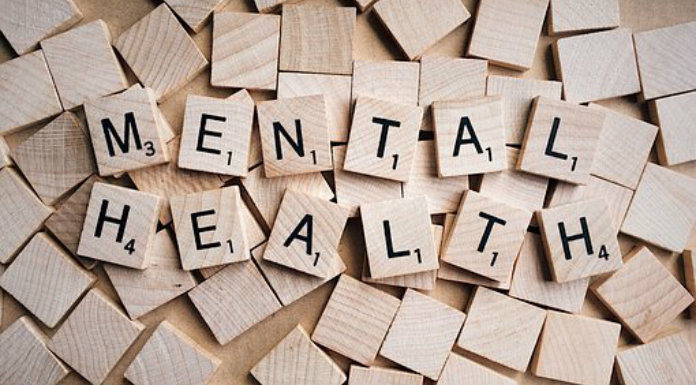The HSE has defended its systems of care for people who present as suicidal at Emergency Departments.
It’s after a leading local mental health advocate revealed that two people from Clare had been turned away from acute psychiatric care units, after presenting themselves at Dooradoyle, simply because, he says, they’re from Clare.
In 2018, folloing his own personal experience with mental health services, Shannon man Gary Fitzgibbon made a presentation to both a meeting of the Shannon Municipal District meeting and the Dáil.
He raised concerns at the time over the fact that people presenting as suicidal at the Emergency Department in Limerick were being turned away, simply because they were from Clare, and revealed that the same thing had happened to him previously.
Today, he said it’s still happening,a and that people are being turned away from services they urgently need, because of the systems in place.
The HSE has today defended it’s systems of care, saying the Crisis Service in the ED at UHL provides a Consultant led Liaison Psychiatry service from 8am to 2:30am every day.
In a statement to Clare FM, it says each person who presents with self-harm receives a timely assessment from a mental health specialist and is then linked to the appropriate care service.
While not discussing individual cases, it also states that admission to an acute psychiatric unit is not always the appropriate action or in the best interests of the person presenting.
Previously, they have stated that after assessment, admissions for Clare patients are often arranged for the Acute Psychiatric Unit in Ennis.
Statement From The HSE
The National Self Harm Programme was introduced and implemented across the country so that a standardised approach is used to assess individuals who have presented to hospital following an episode of self-harm. The tenets of the programme are to ensure that all patients receive an expert bio psychosocial assessment of needs and risks, receive an empathic, compassionate and timely response within the emergency department, and to receive follow-up by connecting to next appropriate care.
The Crisis Service in the Emergency Department UHL, provides a Consultant led Liaison Psychiatry service from 8am to 2:30am daily where each person who presents with self-harm receives a timely assessment from a mental health specialist and then linked to the appropriate care service. Decisions in relation to individual cases are the responsibility of the assessing clinician. In addition, the staffing of the service by experienced Clinical Nurse Specialist has led to the rate of inappropriate admissions being much reduced.
Upon presentation to an Emergency Department with an episode of deliberate self-harm, admission to an acute psychiatric unit is not always the appropriate action or indeed in the best interests of the person presenting. Engagement with community services, problem solving, Dialectical Behaviour Therapy and other interventions have more therapeutic benefit for those who react to stressors by self-harming. Limerick Mental Health Services provide a DBT service covering Limerick City and County which is a very effective intervention but resource heavy. The local voluntary groups such as Pieta House also link in with the Crisis Service to bridge the gap while individuals resolve difficulties or engage in a longer term capacity with the community mental health teams in their area.
The HSE cannot comment on individual cases. Maintaining a client’s confidentiality is not only an ethical requirement for the HSE, it is also a legal requirement as defined in the General Data Protection Regulation (GDPR) along with the Data Protection Acts 1988-2018. When a client or family makes personal information public, this does not relieve the HSE of its duty to preserve/uphold client confidentiality at all times. HSE Mid West Community Healthcare Mental Health team is happy to engage directly with the any of the service users who Mr Fitzgibbon refers to.
Update – The HSE Issued a Further Statement in respect of Mr. Fitzgibbon’s claims on Friday November 22nd.
· HSE Mid West Community Healthcare has engaged from the onset with the Haven Hub and representatives of the Mid West, Mental Health Services have met with them to assist with the provision of training.
· The HSE Suicide Prevention Office disputes the claim by Mr Fitzgibbon that the HSE was unable to provide Assist training until the New Year and only bowed to media pressure in providing training before Christmas. The HSE would like to clarify that this is not the case and Assist training was offered to the Haven Hub for December 2019 . The HSE Suicide Prevention’s Office provides a range of services and supports including Safe talk and Assist training free of charge to individuals and groups across the Mid West . Due to due to demands from groups and individuals to access this training, there is a waiting list system in place to ensure fair access and transparency.
· The HSE believes that Mr Fitzgibbon’s claims that two people he knows were refused access to the Acute Psychiatric Unit in Limerick on the basis of a Clare address is misrepresented. The HSE would like to confirm that all persons regardless of their address in the Mid West can present to the Emergency Department in University Hospital Limerick and will be assessed and treated. In relation to persons presenting with self-harm, the Crisis Service in the Emergency Department,UHL provides a consultant led liaison psychiatry service from 8am to 2:30am daily where each person who presents with self-harm receives an assessment from a mental health specialist and then linked to the e appropriate care service. It should be pointed out that admission to an Acute Psychiatric Unit is not always the appropriate action or indeed in the best interests of the person presenting with an episode of deliberate self-harm. Just because a person is not admitted to hospital does not mean they are not being offered treatment. The most recent study from the National Suicide Research Foundation in their Annual Report 2018 found that only 7% of those presenting to Emergency Departments with self-harm were admitted for acute psychiatric inpatient treatment. It also should be pointed out that where a person is seen by the Crisis Service, UHL and a decision is made to admit that person to an Acute Psychiatric Unit, the address of that person will determine which acute psychiatric unit will be utilised i.e. if that person is from Clare then that person will be admitted to the Acute Psychiatric Unit in Ennis General Hospital or likewise from Limerick he /she will be admitted to Unit 5B, University Hospital Limerick. The National Suicide Research Foundation Report found that only 3% of patients discharged from the Emergency Department in UHL, having presented with self-harm issues, were discharged without follow up. This compares very favourably to 21% nationally








